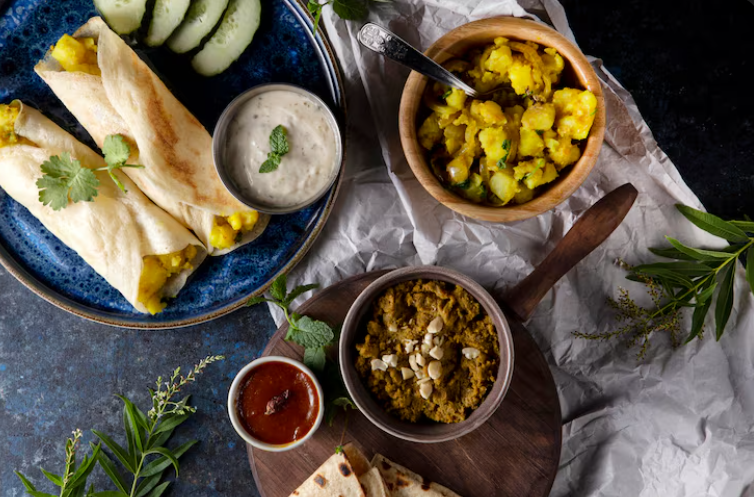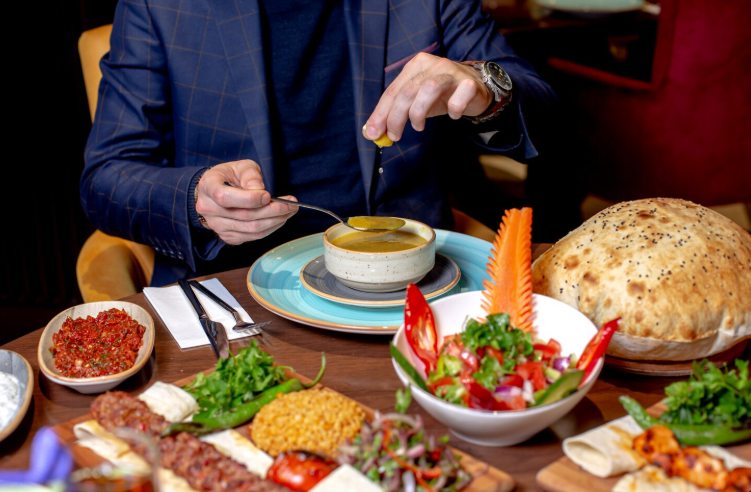
- April 5, 2025
The Ultimate Idli Dosa Batter Business Plan: Start Your Profitable Food Manufacturing Venture Today
The Idli Dosa Batter Business Plan has emerged as one of the most promising opportunities in the food manufacturing industry. With the rise in demand for convenient, ready-to-cook products like ready-made dosa batter, starting a business in this niche is both profitable and scalable.
In just a few steps, you can build a brand that supplies fresh, authentic batter to households, restaurants, and retail outlets. By combining tradition with modern production methods, the Idli Dosa Batter Business Plan offers a rewarding path for entrepreneurs eager to enter the thriving food manufacturing business.
This article provides a complete roadmap, guiding you through everything from market analysis to setting up production, branding, and distribution strategies.
Understanding the Market for Idli Dosa Batter Business
The demand for ready-made dosa batter and idli batter has skyrocketed as urban consumers prioritize convenience without compromising on quality or taste. The market, valued at over ₹1,000 crores in India, continues to grow annually due to:
- Busy Urban Lifestyles: Consumers are shifting towards time-saving cooking solutions.
- Health and Authenticity: Idli and dosa are gluten-free, low-fat, and nutrient-rich foods.
- Global Popularity: South Indian cuisine is gaining traction worldwide, increasing export potential.
By understanding these trends, your Idli Dosa Batter Business Plan can cater to a diverse audience while staying ahead of the competition.
Interested in South Indian restaurant chains? Explore popular South Indian restaurants in Ahmedabad, Mumbai, Delhi, Vadodara, and Jaipur.
Why Start an Idli Dosa Batter Business?
The Idli Dosa Batter Business is one of the most attractive food manufacturing ventures today, offering excellent returns on investment and growth opportunities. Here are some compelling reasons to consider this business:
- Growing Consumer Demand
The demand for ready-made dosa batter has skyrocketed over the years. With busy lifestyles and a preference for convenience, urban households and working professionals are increasingly turning to pre-prepared food products. Supplying fresh, high-quality batter meets this growing need effectively. - Low Initial Investment
Starting an Idli Dosa Batter Business does not require significant upfront capital. You can begin small with essential equipment like grinders and fermentation tanks and scale up as your customer base grows. This makes it an ideal option for first-time entrepreneurs. - Scalability and Profitability
The business can be scaled from local distribution to supermarkets, online platforms, and even export markets. With a profit margin of 30% to 50%, depending on your scale, this business offers long-term financial sustainability. - Cultural Relevance and Popularity
Idli and dosa are staples in Indian households, making batter a product with a constant demand. The versatility of these dishes ensures that your target market spans households, restaurants, cafes, and even catering services. - Health and Wellness Trends
Consumers are becoming increasingly health-conscious, opting for traditional, gluten-free, and preservative-free products. By offering organic or millet-based batter, you can cater to this health-conscious demographic and establish a niche for your brand. - Ease of Branding and Marketing
Products like dosa batter are easy to brand. A strong USP, such as “authentic South Indian flavor” or “100% organic batter,” can set you apart from competitors. Marketing through digital channels like Instagram and Facebook allows you to reach a wide audience with minimal costs. - Eco-Friendly Opportunities
By adopting sustainable practices, such as biodegradable packaging, your business can attract environmentally conscious consumers, further boosting your brand’s reputation.
Starting a business in this niche allows you to tap into a rapidly expanding market while offering consumers the convenience and authenticity they seek in South Indian cuisine.
Step-by-Step Idli Dosa Batter Business Plan
Starting an Idli Dosa Batter Business requires a clear plan and systematic execution. Below is a detailed step-by-step guide to help you launch your venture successfully:
1. Conduct Market Research
- Analyze the local and regional demand for ready-made dosa and idli batter.
- Identify your target audience, which could include households, restaurants, supermarkets, and retailers.
- Study your competitors—both large-scale brands like ID Fresh Food and smaller regional players—to understand their pricing, branding, and distribution strategies.
- Conduct surveys or focus groups to identify customer preferences for taste, packaging, and convenience.
- Study successful South Indian food businesses, such as this list of famous South Indian foods.
2. Get Necessary Licenses and Certifications
Legal compliance is crucial for operating in the food manufacturing industry. Ensure you obtain:
- FSSAI License: This certifies your product’s safety and hygiene.
- GST Registration: Enables you to comply with tax regulations and issue proper invoices.
- Local Permits: Obtain permissions from municipal authorities to run your business.
Having these licenses not only builds customer trust but also protects you from legal complications.
3. Source High-Quality Ingredients
The quality of your batter depends on the ingredients used. Source premium-grade:
- Rice (varieties like parboiled or raw rice)
- Urad dal (for the perfect texture and taste)
- Fenugreek seeds (to aid fermentation)
Choose local suppliers or organic farms to ensure freshness and sustainability. Building long-term relationships with your suppliers will also help secure better prices.
4. Set Up Infrastructure and Equipment
Investing in the right equipment is vital to maintaining consistency in production. Essential equipment includes:
- Wet Grinders: For grinding rice and dal into a smooth batter.
- Fermentation Tanks: To allow batter to ferment at the right temperature and develop its authentic flavor.
- Storage Containers: Airtight containers to preserve the freshness of the batter.
- Steamers: Useful for testing the batter quality during development.
Ensure your production facility is spacious, clean, and equipped with water filtration systems to maintain hygiene standards.
5. Create Your Brand Identity
A strong brand helps distinguish your product in a competitive market.
- Choose a memorable brand name and logo that reflects authenticity and tradition.
- Design eco-friendly, attractive packaging with clear labeling that highlights your product’s USP (e.g., organic, gluten-free, preservative-free).
- Use taglines like “From our kitchen to yours” or “Authentic South Indian flavor at your fingertips” to connect emotionally with customers.
6. Build a Marketing and Distribution Strategy
To succeed in the Idli Dosa Batter Business, you need an effective marketing and distribution plan:
- Physical Distribution: Partner with local grocery stores, supermarkets, and restaurants. Build relationships with retail chains for long-term supply agreements.
- E-commerce Platforms: List your products on Amazon, BigBasket, or Swiggy Instamart for wider reach.
- Social Media Campaigns: Share engaging content like recipe videos, customer reviews, and behind-the-scenes footage to attract online audiences.
- Promotional Offers: Offer discounts, free samples, or loyalty programs to encourage trial and repeat purchases.
7. Establish Quality Control Measures
Maintaining consistent quality is crucial to building customer trust. Key practices include:
- Inspecting raw ingredients for freshness and quality.
- Regularly testing batter batches for taste, texture, and consistency.
- Training staff on hygiene protocols and ensuring a clean production facility.
8. Scale and Diversify Your Offerings
As your business grows, consider expanding your product line:
- Introduce batter variations like millet-based, quinoa-based, or organic options to cater to health-conscious consumers.
- Offer complementary products such as chutney powders, sambhar mixes, or dosa masala kits.
- Explore export opportunities to reach South Indian cuisine enthusiasts globally.
By following this detailed Idli Dosa Batter Business Plan, you can create a profitable, scalable, and sustainable food manufacturing business that delivers high-quality products to a growing customer base.
Quality Control and Customer Satisfaction
Ensuring consistency in taste and freshness is vital to building trust and growing your business. Implement the following practices:
- Hygiene Standards: Maintain clean production facilities and train staff on sanitation protocols.
- Batch Testing: Regularly test for taste, texture, and freshness.
- Customer Feedback: Actively collect and analyze feedback to improve your offerings.
Scaling and Diversifying Your Product Line
Once your business gains momentum, consider expanding into new product lines:
- Millet, quinoa, or oats-based batter for health-conscious customers.
- Complementary products like chutneys, sambhar mixes, or dosa masala kits.
- Export-ready packaging for international markets.
Diversifying your offerings not only increases revenue but also helps establish your brand as a comprehensive supplier in the food manufacturing business.
Conclusion
The Idli Dosa Batter Business Plan is a rewarding opportunity in the growing food manufacturing business. By delivering ready-made dosa batter with authenticity and high quality, you can tap into a profitable and scalable market.
Ready to start your journey? Partner with Mysore Aduge, a trusted brand that blends tradition with modern entrepreneurship. Explore franchise opportunities today at Mysore Aduge or contact us at info@mysoreaduge.com to become part of a culinary legacy!
Frequently Asked Questions
To start an Idli Dosa Batter Business, conduct market research, acquire licenses (FSSAI, GST), set up production with the right equipment, and develop a brand with strong marketing and distribution strategies.
The essential equipment includes:
- Wet grinders for batter preparation.
- Fermentation tanks for quality consistency.
- Storage containers for maintaining freshness.
- Steamers for quality checks.
Profit margins can range from 30% to 50%, depending on factors like production scale, pricing, and distribution efficiency.
Focus on branding, offer sustainable packaging, engage customers through social media, and provide discounts or sample tastings.
Starting a small-scale operation can cost around ₹2-5 lakhs. Large-scale businesses may require ₹10-20 lakhs or more, depending on production capacity.
Yes, you can create an organic product line using sustainably sourced ingredients to attract health-conscious customers.
Challenges include ensuring consistent quality, managing distribution logistics, and competing with established brands.
To export, partner with distributors or list your products on global e-commerce platforms targeting South Indian cuisine enthusiasts.








